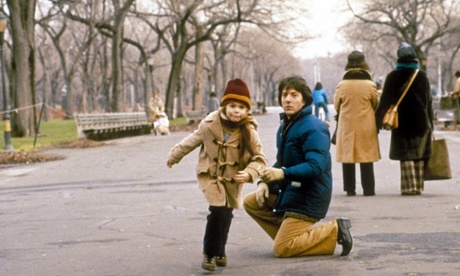
As I write this, I am preparing to go in front of a festival audience to discuss – among other things – the role of the father in English literature. This got me thinking about which of these fictional figures resonates most strongly with my own experience of parenthood.
Literary fathers tend to be heroic or dreadful, as opposed to rather tepidly human like myself. I am neither Patrick Melrose’s monstrous, sexually predatory father in the Edward St Aubyn novels, nor the venal and crude Harry Wormwood in Roald Dahl’s Matilda.
In contrast, I would like to have the nobility and moral character of Atticus Finch in To Kill a Mockingbird or the dogged, tragic determination of the anguished father in Cormac McCarthy’s The Road – but I never shall. I am more like Harry “Rabbit” Angstrom, in the John Updike quartet, flawed, and puzzled, irredeemably human, or the tetchy, hounded Ed Boone in Mark Haddon’s The Curious Incident of the Dog in the Night-Time.
Depressingly, I also find it impossible not to identify with King Lear – a half crazy old man who has an intensely elevated view of his own role in the scheme of things and a prideful stubborness. Certainly, Lear’s speech “Unaccommodated man is no more but such a poor, bare, forked animal as thou art” springs to mind when I am being mocked for the mere presence of male genitalia (admittedly when I have failed to secure my dressing gown sufficiently).
Staying with the crazy dad theme, I hope I could never quite descend to to Jack Torrance level of psychopathy in The Shining, although I suppose going homicidal with an axe is one way out of writer’s block. And at times it’s a pleasant fantasy. I identify more with Jane Austen’s Mr Bennet, who just trumps me by having five daughters instead of four.
I am fond of Mr Bennet – he is wise, tolerant and funny, and his daughters all adore him. And inasmuch as he is imperfect, he is imperfect rather in the way I like to see myself – as one blogger puts it, Bennet is “a man who is level-headed and fairly wise but who also lets his … headstrong girls do pretty much whatever they want”.
Rather less flatteringly, I also recognise myself in Cassandra Mortmain’s writer father, James, in I Capture the Castle by Dodie Smith. James is not a bad man, but somewhat self-obsessed and aloof, caught up in his own personal ideals rather than the ideal of the family. As a result, that family crumbles around him like the castle he has insisted they all live in. I couldn’t survive in a castle, or anywhere without central heating, but the abstracted, writerly mind of which I am undoubtedly a sufferer does not always make for the most engaged or hands-on father. Sometimes I am barely aware of anything but the next sentence I am trying to forge while chaos is breaking out all around.
But the prize of father I most recognise goes to Ted Kramer, the hero of Avery Corman’s novel Kramer vs Kramer and my favourite single dad. The period I spent as a single father probably remains one of the most challenging periods of my life, and if I watch the film of the book, Dustin Hoffman touches a nerve in scene after scene – from his pathetic attempts to make French toast for his resentfully ungrateful son, to his helplessness watching his son fall from the climbing frame and rushing him to hospital in his arms. It cracks me up and makes me weep every time.
So, that final count – 40% Ted Kramer, 20% Mr Bennet, 20% King Lear, the remainder a mix of Angstrom, Boone, Mortmain and Torrance. It adds up to love, anger, despair, amusement, frustration and a little pinch of madness. It adds up, in short, to being a father.
• Follow Tim on Twitter @timlottwriter

